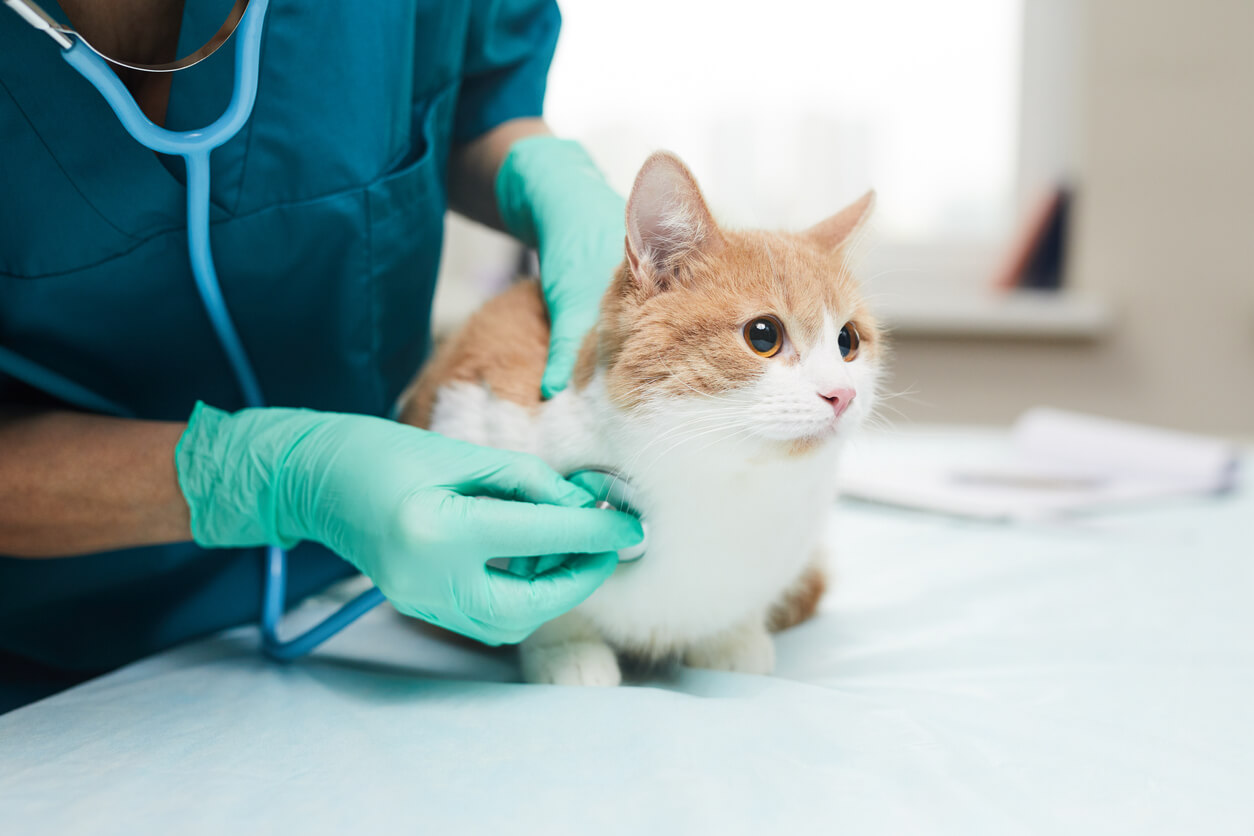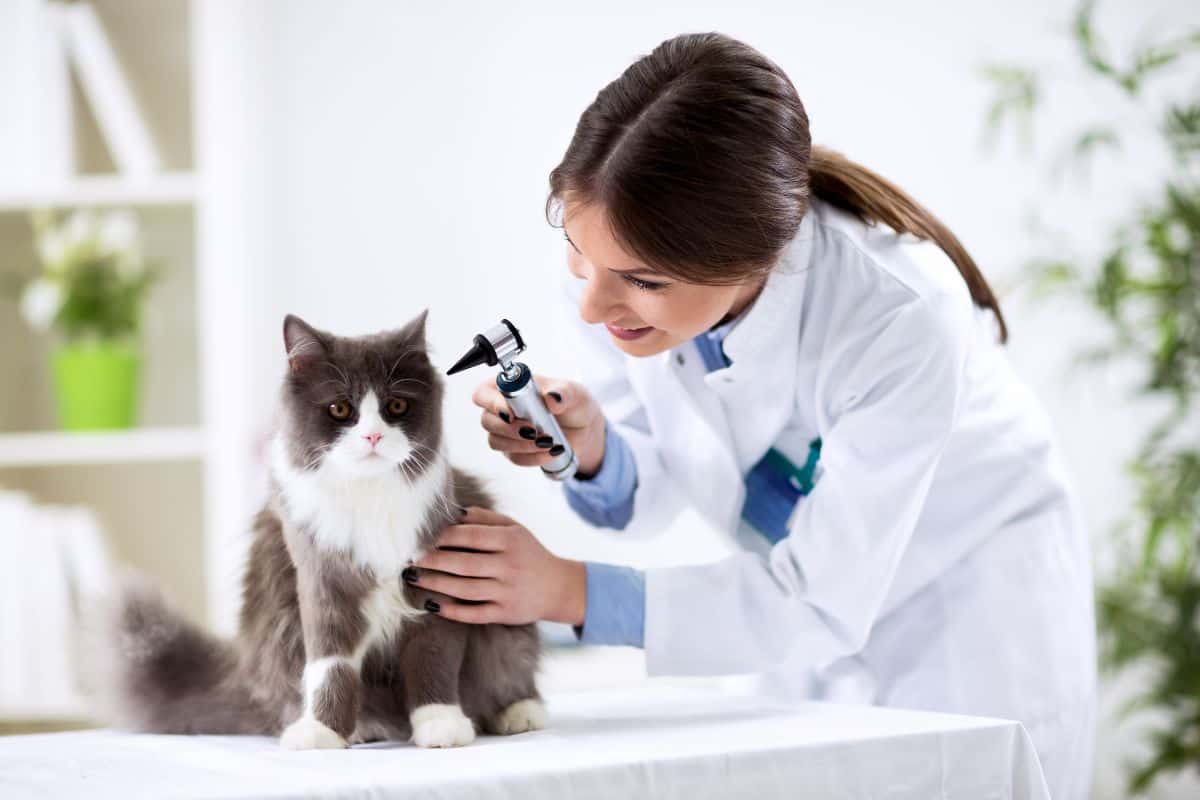What to Anticipate During a Detailed Pet Health Checkup at Your Local Vet
What to Anticipate During a Detailed Pet Health Checkup at Your Local Vet
Blog Article
Inoculation Standards From Your Trusted Veterinarian
Vaccination standards offered by your trusted veterinarian play a crucial duty in safeguarding your pet's health and wellness and wellness. Furthermore, dealing with typical misconceptions bordering vaccines can additionally boost family pet owners' self-confidence in these preventative steps.

Importance of Inoculations
Vaccinations play a crucial role in safeguarding animals versus a variety of preventable conditions. By boosting the body immune system to acknowledge and battle particular pathogens, vaccinations considerably minimize the occurrence of transmittable illness that can affect a family pet's health and longevity. Not only do vaccinations protect individual pets, yet they likewise contribute to herd immunity, consequently decreasing the overall frequency of conditions in the family pet populace.
Prompt vaccinations help to minimize the spread of conditions such as rabies, parvovirus, and distemper, which can have severe consequences for both animals and humans. Vaccinations are commonly a need for boarding centers, brushing solutions, and pet parks, making them essential for those who desire to socialize their animals.

Core Vaccinations for Pet Dogs
While the details vaccination needs of pet dogs can differ based on individual factors, core injections are globally suggested to protect versus the most significant and typical diseases (Veterinarian Enterprise). Core vaccinations are those considered vital for all family pets, despite their way of living or geographic area, as they safeguard versus highly infectious and potentially fatal illnesses
For pets, the core vaccines include those for canine distemper, parvovirus, adenovirus (hepatitis), and rabies. Adenovirus can result in liver illness, while rabies is a zoonotic illness that presents a threat to both people and family pets.
In pet cats, core vaccines include feline panleukopenia, feline calicivirus, feline herpesvirus (rhinotracheitis), and rabies. Feline panleukopenia is an extremely transmittable viral disease that affects the immune system and intestines. Calicivirus and herpesvirus are major contributors to upper breathing infections in felines, while rabies stays a vital issue for public health.
Seek advice from your veterinarian to ensure your animals receive their core vaccinations on time.
Non-Core Vaccines Explained
Non-core vaccines are customized to resolve details dangers connected with a family pet's way of life, setting, and exposure to certain conditions. Unlike core vaccines, which are generally recommended for all pets, non-core injections are thought about based on individual conditions. These vaccinations are specifically crucial for pet dogs that may experience unique virus due to their geographical area, travel habits, or tasks.
Examples of non-core vaccinations include those for Bordetella bronchiseptica, which is connected to kennel cough, and Lyme condition, triggered by ticks. Animals that frequently connect with various other animals, such as those in boarding centers, pet parks, or grooming settings, might gain from Bordetella vaccination. In a similar way, if you stay in a location where Lyme disease prevails, immunizing against this disease can be a prudent option for outdoor-loving pet dogs.
Various other non-core injections might consist of those for leptospirosis, canine influenza, and feline leukemia, relying on the particular danger factors present. It is necessary to have a thorough discussion with your vet about your family pet's way of living and the potential requirement for these vaccinations, guaranteeing a customized vaccination method that ideal protects your furry close friend.
Vaccination Set Up Overview

As pets develop, it is essential to abide by the suggested booster inoculations. Veterinarian Enterprise. For adult pets, core vaccines are commonly provided each to 3 years, depending on the certain vaccination and regional laws. Non-core vaccines may be recommended based on way of life aspects and local condition frequency, necessitating a tailored technique
Normal vet check-ups are crucial for upgrading inoculation timetables. Your vet can give guidance on the most appropriate immunizations for your pet, factoring in age, health status, and environmental dangers. By staying positive and notified, animal proprietors can guarantee their hairy friends obtain timely and effective inoculations, consequently safeguarding their health and wellness and well-being throughout their lives.
Usual Myths Concerning Injections
Mistaken beliefs concerning animal inoculations can bring about complication and unwillingness among pet dog proprietors pertaining to the immunization process. One widespread misconception is that injections are unnecessary for indoor pets. While it's true that indoor pet dogs deal with lower dangers, they are not completely immune to conditions, as virus can be presented via numerous methods, consisting of human clothes and other animals.
One more mistaken belief is that vaccinations can cause the diseases they aim to stop. In reality, most vaccines contain suspended or undermined microorganisms, which can not cause condition in healthy and balanced animals. Some pet dog owners additionally believe that their pet dogs ought to not be immunized if hop over to here they are already healthy and balanced; nonetheless, vaccinations are an aggressive procedure that helps avoid the start of health problem.
Furthermore, many animal proprietors are afraid that vaccinations will certainly lead to long-term health problems. The benefits of vaccination-- securing family pets from possibly serious diseases-- far outweigh the dangers.
Final Thought
In summary, adherence to inoculation guidelines is vital for making sure the health and long life of family pets. Dispelling usual myths surrounding vaccinations further reinforces the relevance of notified decision-making in animal treatment.
Not only do inoculations secure individual pets, however they likewise contribute to herd immunity, thereby reducing the total occurrence of illness in the animal populace.
Misconceptions concerning family pet vaccinations can lead to complication and reluctance among pet owners pertaining to the immunization process. While it's real that interior animals deal with reduced risks, they are not completely immune to illness, as virus can be presented through different methods, consisting of human clothing and other family pets.
Some pet owners likewise think that their pet dogs should not be vaccinated if they are currently healthy and balanced; nonetheless, vaccinations read here are a positive procedure that helps stop the onset of disease.
The advantages of inoculation-- protecting animals from possibly deadly conditions-- far surpass the risks.
Report this page